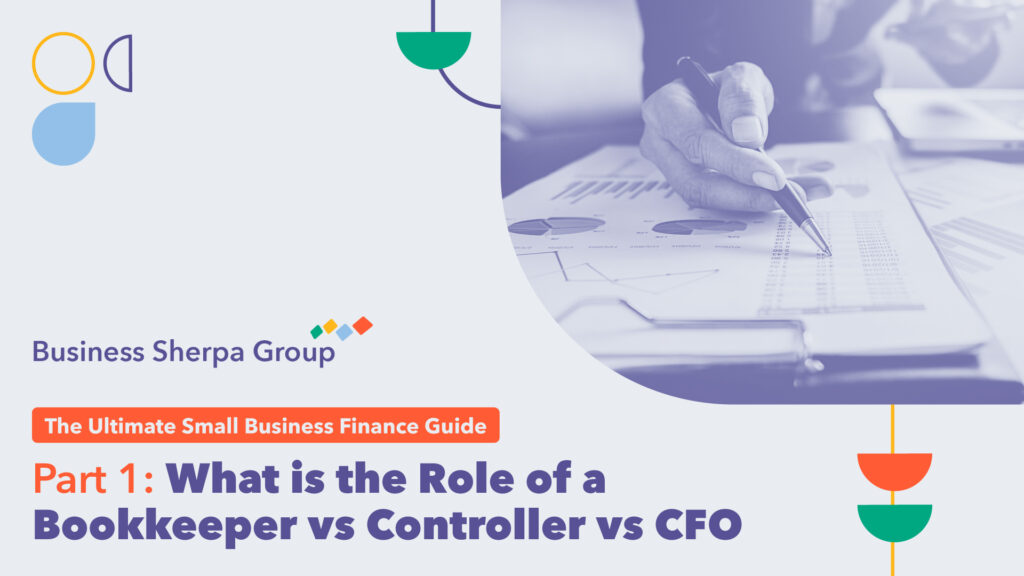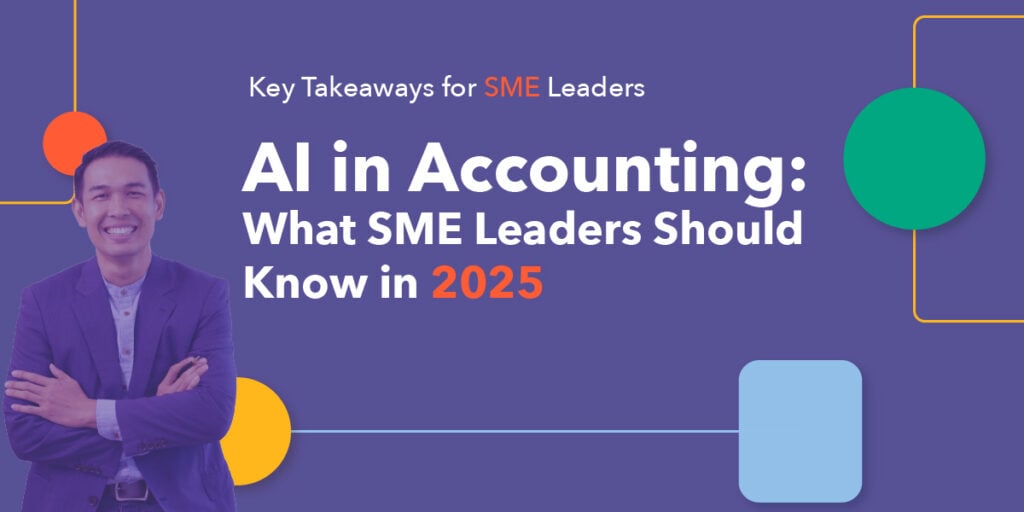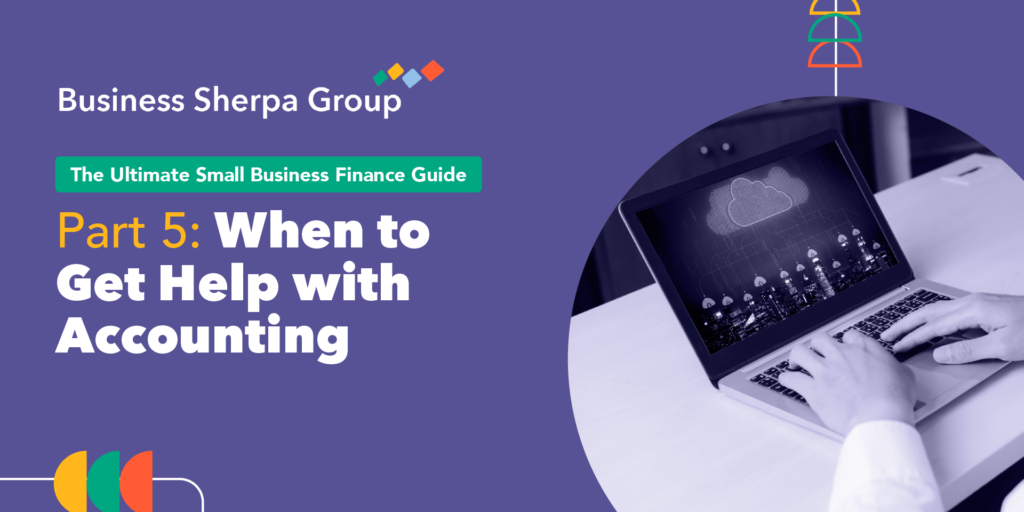What is the Role of a Bookkeeper vs Controller vs CFO?
As your business grows, so does the need for specialized financial oversight. Initially, business owners may handle most accounting tasks, but over time, it’s clear that distinct financial roles are necessary to maintain accuracy and provide strategic insights. In this article, we will review what a CFO, Controller, and Bookkeeper do in a business and how they complement an external tax accounting firm. Understanding the unique functions of each position will help ensure that your financial operations run smoothly and your business is well-positioned for growth.
The Bookkeeper: Day-to-Day Financial Management
A bookkeeper is usually the first financial role a business fills. They are responsible for recording day-to-day financial transactions—everything from sales and purchases to receipts and disbursements. They track cash flow, prepare basic internal financial reports like income statements and balance sheets, and manage tasks such as payroll and tax remittances.
In small businesses, the bookkeeper’s role might be handled by an internal employee or outsourced to a contractor. While they primarily focus on past and current transactions, they provide the essential foundation for any business to function smoothly. As a business grows, however, many companies struggle with bookkeepers being spread too thin, particularly when administrative tasks start to overlap with finance duties, which can lead to errors and inefficiencies.
Common Pitfalls in Small Business Bookkeeping
Small businesses often fall into the trap of assigning bookkeeping responsibilities to administrative staff, which can cause problems as the business scales. Administrative professionals are usually skilled in basic data entry and filing but may lack the formal training required to handle more complex bookkeeping tasks. Without a dedicated bookkeeper, businesses can encounter costly errors and missed opportunities to streamline financial processes.
At this point, separating administrative and bookkeeping tasks becomes crucial to avoid mistakes and inefficiencies. A tech-savvy bookkeeper can reduce errors, identify trends in financial data, and provide valuable insights that administrators might miss. This is why outsourcing your bookkeeping tasks can provide an efficient and cost-effective solution as your business grows.
Read More: Small Business Bookkeeping Errors
The Controller: Overseeing Financial Strategy and Internal Controls
As your business grows, managing financial data becomes increasingly complex. This is where a controller comes in. While the bookkeeper manages the daily financial tasks, the controller oversees financial reporting, internal controls, and compliance. Controllers ensure that financial data aligns with your business strategies and regulatory requirements.
A controller’s role involves supervising a team of bookkeepers or accounting clerks, implementing internal policies, and preparing comprehensive financial reports for management. They provide crucial insights to senior management, helping to operationalize strategic decisions and ensure the business stays financially sound.
Bookkeeper vs. Controller
The key distinction between a bookkeeper and a controller lies in the scope of their tasks. A bookkeeper records financial transactions, keeps past and present data, and generates basic reports. In contrast, a controller has a broader role, overseeing the entire accounting function, analyzing financial data, and ensuring that financial records are accurate and compliant with regulations. Controllers provide the business with strategic insight and help to ensure the company’s finances remain organized as it scales.
The CFO: Strategic Financial Leadership
The Chief Financial Officer (CFO) is an organization’s most senior financial role. CFOs focus on long-term financial strategy, forecasting, and risk management. While bookkeepers focus on past transactions and controllers ensure that financial data is accurate and compliant, the CFO looks forward. Their role is to assess financial risks, identify growth opportunities, and make decisions about expansion, financing, and capital management, all while supporting overall strategic decision making.
In smaller companies, hiring a full-time CFO might not be feasible, but that’s where virtual CFOs come in. Virtual CFOs offer the same high-level financial strategy but on a part-time or contract basis. This makes it possible for small businesses to benefit from strategic financial leadership without the high cost of a full-time CFO.
Bookkeeper vs. Controller vs. CFO
While these roles are all vital to a business’s financial health, they each have different focuses. A bookkeeper handles daily financial operations and past transactions. The controller oversees financial reporting and compliance, ensuring the company’s accounting practices align with business strategy. Meanwhile, the CFO leads the company’s financial strategy, helping to make decisions that shape the business’s future growth and long-term success.
When Do You Need Each Role?
- Bookkeeper: Every business, regardless of size, needs a bookkeeper from the outset. A bookkeeper ensures that your financial records are accurate, invoices are paid, and taxes are remitted on time. They handle the day-to-day financial operations, keeping everything organized.
- Controller: As your business grows, you’ll need a controller to handle more complex financial reporting and oversight. Controllers are especially crucial when your business grows. They help to structure the accounting function and ensure robust financial controls are in place.
- CFO: When your business reaches a point where strategic financial decisions are required—such as managing risk, pursuing growth opportunities, or optimizing capital—a CFO becomes necessary. Virtual or Fractional CFO services are available for smaller businesses that can’t afford a full-time CFO but still need strategic leadership.
The Relationship Between Bookkeepers, Controllers, CFOs, and Tax Accountants
Although bookkeepers, controllers, and CFOs don’t typically handle tax preparation, their roles are deeply intertwined with tax accounting. Bookkeepers provide the essential data for tax reporting, while controllers ensure that financial processes and internal controls comply with tax laws. If the organization is an NFP, another important element controller’s handle is internal control compliance – critical for enabling smooth audits, which in turn supports lower audit costs. The CFO may be involved in tax strategy and planning, working with the tax accountant to manage cash flow and optimize tax liabilities.
Having a solid finance team ensures that your business is compliant with tax regulations and optimized for profitability. By aligning financial oversight with strategic tax planning, businesses can avoid costly mistakes and ensure long-term success.
The bookkeeper, controller, and CFO each play a crucial role in your business’s financial health. While the bookkeeper manages daily financial tasks, the controller ensures accurate reporting and compliance, and the CFO drives strategic financial decisions. Understanding when and why to engage each role helps ensure your business remains financially stable and primed for growth. As your company expands, having the right financial expertise will empower you to make informed decisions and align your operations with long-term goals.
Business Sherpa Group provides fractional and flexible Bookkeepers, Controllers and CFOs – if you’re curious what your business might need, please contact us. We’re happy to talk through your questions together.










